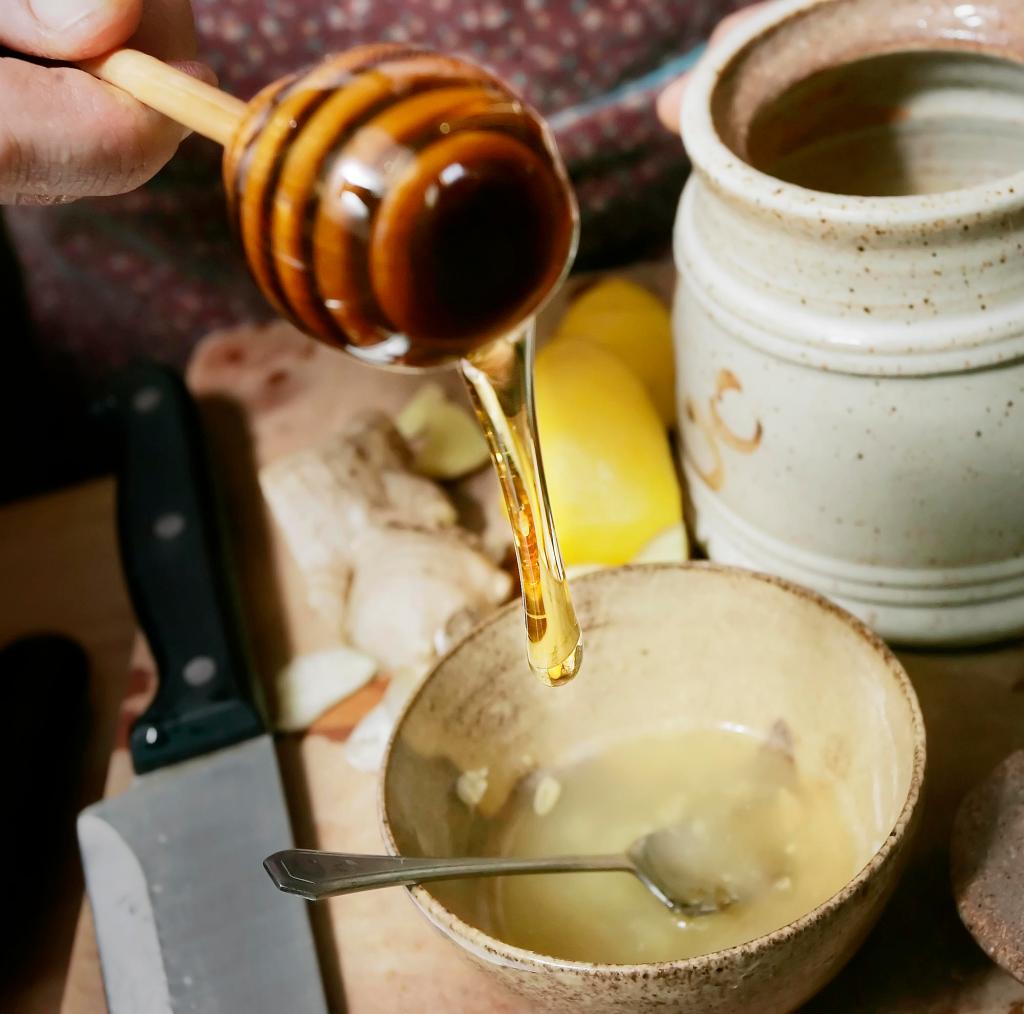It’s a busy time of year at Homegrown Herb & Tea on Portland’s Munjoy Hill. With a steady stream of customers, herbalist Sarah Richards is scrambling to stock enough herbs to keep up with demand.
“This is high season for me,” Richards said on a recent morning before she opened the shop. “This is when people are sick or trying to avoid being sick.”
Richards said customers seek her out as a natural and less expensive alternative to pharmaceutical remedies.
“I get a lot of calls for preventative remedies,” Richards said. “‘Do you have anything to ward off a cold?’ is a typical request at this time of year.”
Richards follows Ayurvedic herbal traditions. This ancient Indian medicinal practice prescribes different treatments and blends based on an individual’s constitution, or dosha. For those looking for a more generic brew, she has a featured tea called Simple Winter Tonic, which contains echinacea, elder flowers, ginger, ginseng and lemongrass.
“It’s not overly medicinal, but it’s balancing for all constitutions,” Richards said.
Gail Faith Edwards, who owns Blessed Maine Herb Farm in Athens, said one of her favorite herbs at this time of year is rose: petals and hips. She likes to use roses to both boost immunity and ward off seasonal depression and stress.
“They’re very reliable medicine and food, and they grow wild all over Maine,” Edwards said.
During her more than 35 years as an herbalist, Edwards has watched interest in plant-based remedies steadily increase.
“Especially with the health care situation in our country where the third-leading cause of death is pharmaceutical drugs that are taken as directed, you’d have to be asleep not to seek alternatives,” Edwards said.
She said that unlike prescription and over-the-counter drugs, which contain isolated and refined chemical compounds, plants and herbs are made up of hundreds of chemicals, which work together to promote health and healing.
“Our bodies resonate with and recognize the constituents in herbs,” Edwards said. “In Chinese and Ayurvedic medicine, they don’t have the same concept of killing off microbes (like Western medicine). They work to build the vitality of the human being. It’s a very different approach to health.”
Send questions/comments to the editors.


